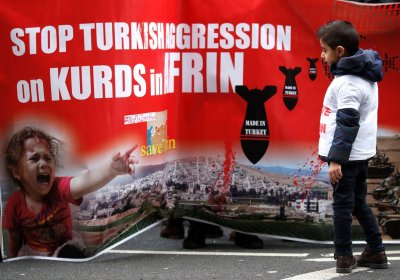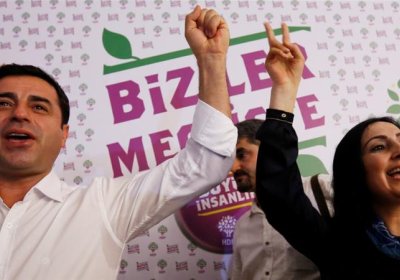The People’s Democratic Party (HDP), a broad-based left-wing group largely initiated by Kurdish forces in Turkey, has faced the full brunt of President Recep Tayyip Erdogan’s authoritarian crackdown.
More than 10,000 HDP members have been arrested, along with its leaders and dozens of elected officials — often on trumped-up charges of “supporting terrorism” in retaliation for the HDP’s support for the struggle of the Kurdish community for democratic rights.











